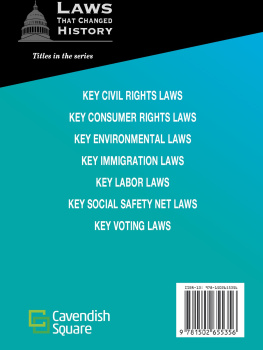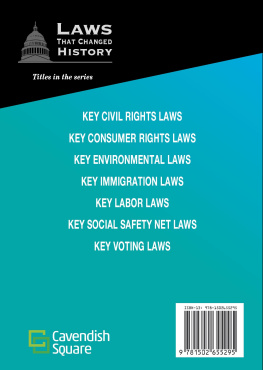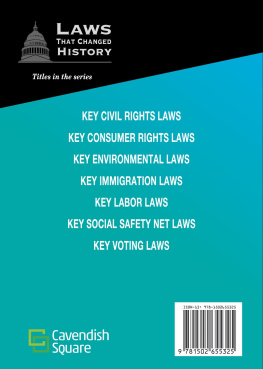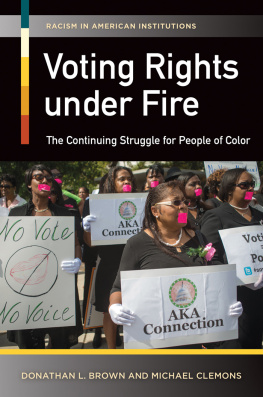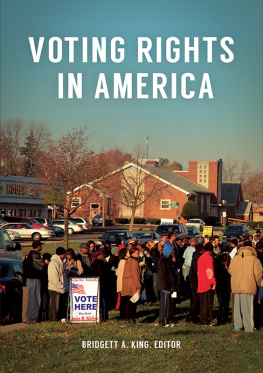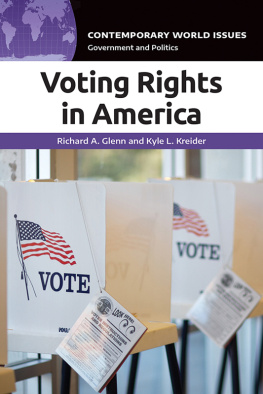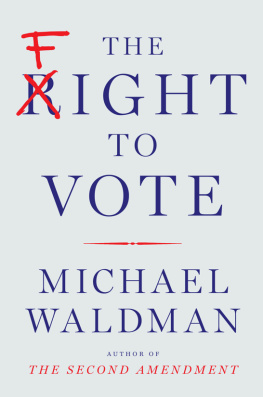
Published in 2020 by Cavendish Square Publishing, LLC
243 5th Avenue, Suite 136, New York, NY 10016
Copyright 2020 by Cavendish Square Publishing, LLC
First Edition
No part of this publication may be reproduced, stored in a retrieval system, or transmitted in any form or by any meanselectronic, mechanical, photocopying, recording, or otherwisewithout the prior permission of the copyright owner. Request for permission should be addressed to Permissions, Cavendish Square Publishing, 243 5th Avenue, Suite 136, New York, NY 10016. Tel (877) 980-4450; fax (877) 980-4454.
Website: cavendishsq.com
This publication represents the opinions and views of the author based on his or her personal experience, knowledge, and research. The information in this book serves as a general guide only. The author and publisher have used their best efforts in preparing this book and disclaim liability rising directly or indirectly from the use and application of this book.
All websites were available and accurate when this book was sent to press.
Cataloging-in-Publication Data
Names: Acks, Alex.
Title: Key voting laws / Alex Acks.
Description: New York: Cavendish Square Publishing, 2020. | Series: Laws that changed history | Includes glossary and index.
Identifiers: ISBN 9781502655356 (pbk.) | ISBN 9781502655363 (library bound) | ISBN 9781502655370 (ebook)
Subjects: LCSH: Suffrage--United States--Juvenile literature. | Election law-United States--Juvenile literature. | Voting--United States--Juvenile literature. | Voter registration--United States--Juvenile literature. | Voting--Corrupt practices--United States--Juvenile literature. | Women--Suffrage--United States--Juvenile literature.
Classification: LCC KF4891.A29 2020 | DDC 342.73072--dc23
Printed in the United States of America
Photo Credits: Cover, p..
CONTENTS
Introduction
O n January 8, 2019, 1.5 million people in Florida who hadnt been allowed to register to vote on January 7 could turn in their voter registration forms. Just two months before, voters in the state passed Amendment Four with nearly 65 percent of the vote. Amendment Four changed Floridas constitution to restore the right to vote for people with prior felony convictions, except those convicted of murder or a felony sexual offense, upon completion of their sentences, including prison, parole, and probation.
If youve never been convicted of a crime or known someone who has been, you may not have thought about what a conviction can do to voting rights. In America, there are only two states that dont place at least some restrictions on the voting rights of people who have been convicted of a felony: Maine and Vermont. Most other states do not allow people who are currently in prison to vote, though they vary on whether felons are allowed to vote again once they are on parole or probation. Florida was the fourth state on that list until the passage of Amendment Four.
Many laws that take away the rights of people convicted of felonies can trace their lineage back to the end of the US Civil War. Former Confederate states began to put black codes in place; these were laws that placed restrictions on employment for black people and instituted high fines for breaking those laws. Those who couldnt pay off their finesand most couldnt were effectively enslaved again to work off their debt under a white employer. As early as 1894 and continuing through the Jim Crow era, when racial segregation was law in the South and was enforced socially rather than legally in many places in the North, criminal codes were revisited as a way to disenfranchise black voters. States across the country passed laws that took the right to vote away from anyone who committed even a minor crime, and black people were targeted disproportionately for arrest, sometimes for false charges. One arrest could lead to a person losing their right to vote forever. The Florida law that Amendment Four overturned originated in 1868.
One of the dynamos who helped change that law was Desmond Meade, a fifty-one-year-old black man who had lost his right to vote after a felony conviction. In 2005, Meade was on the brink of committing suicide after finishing a three-year prison sentence that left him addicted to drugs, unemployed, and homeless. Instead, he checked himself into a rehabilitation center and began taking community college classes that led him to Florida International University Law School. He wasnt allowed to take the bar exam because of his conviction, but he used his legal knowledge to figure out how to best challenge Floridas voting law. On January 8, 2019, Desmond Meade registered to vote.
CHAPTER
1
Foundational Voting Laws
E lections are nothing new in the world. Thousands of years ago in ancient Athens, male citizens voted on all of the issues that affected the cities they lived in. A great statesman of the time, Pericles, said that Athenians thought of a man who takes no interest in public affairs not as apathetic, but as completely useless. Women, children, enslaved people, and foreigners were not allowed to vote.
The kind of elections were familiar with today started developing during the 1600s in America and Europe, driven by a new political idea that individuals, rather than estates or companies, mattered and should be counted and represented. At that time, anyone meant men who owned property of a certain valuea tiny percentage of the population.
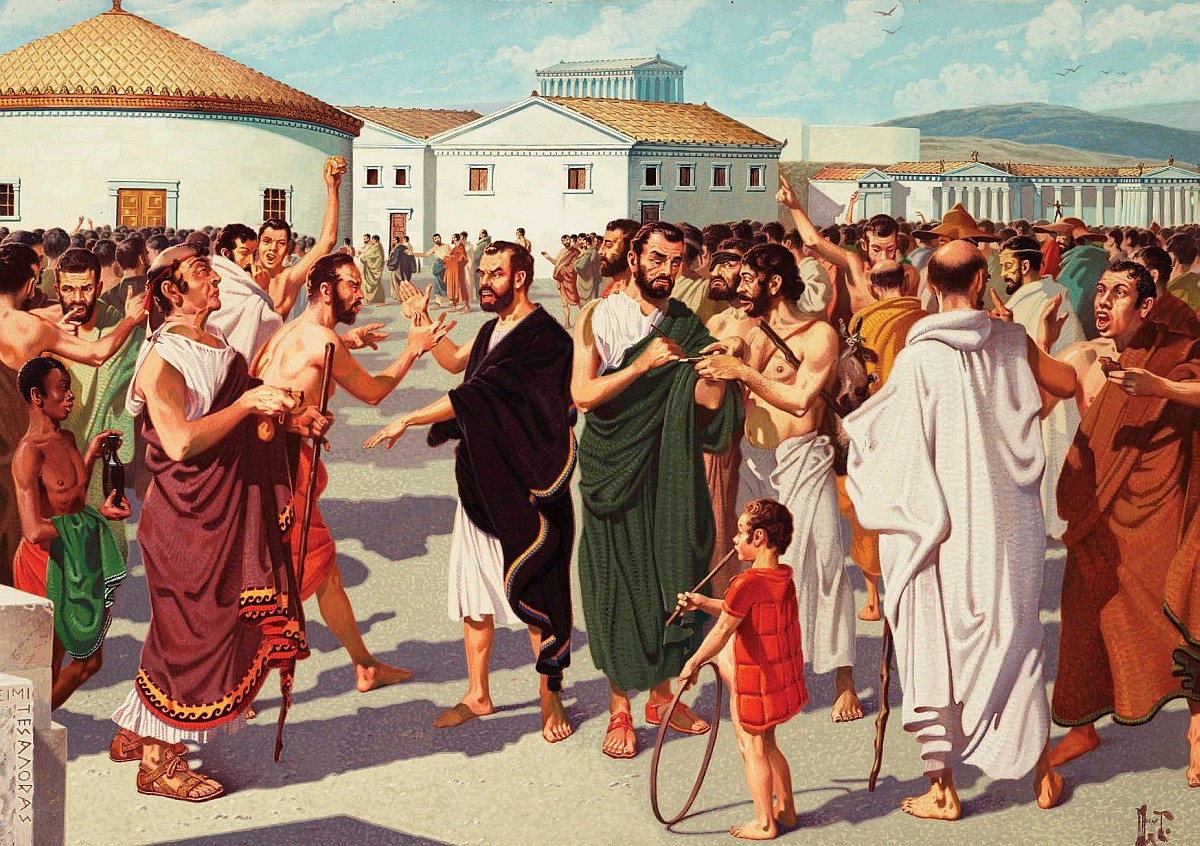
In ancient Greece, male citizens voted regularly on issues that affected their cities. Women, children, enslaved people, and foreigners were not allowed to vote.
There were exceptions; some colonies allowed unmarried and widowed women to vote, or free black menif they met the property requirements.
While there were many factors that led to the Revolutionary War, a major complaint of the colonists was taxation without representation. The colonists were being taxed to pay for English war debt by a Parliament they were not allowed to vote for. As limited as the franchise was at that time, its power was still undeniable.
Voting at the Dawn of America
The American Revolutionary War began at Lexington and Concord on April 19, 1775, with the shot heard round the world and didnt end until 1783. The Constitutional Convention began drafting the Constitution of the United States of America on May 14, 1787, and the new government began two years later on March 4, 1789. There still needed to be a government in that intervening time.
Under the Articles of Confederation, each state had only one vote in the legislature, though a state would have at least two delegates in Congress. These delegates were elected by state legislatures.
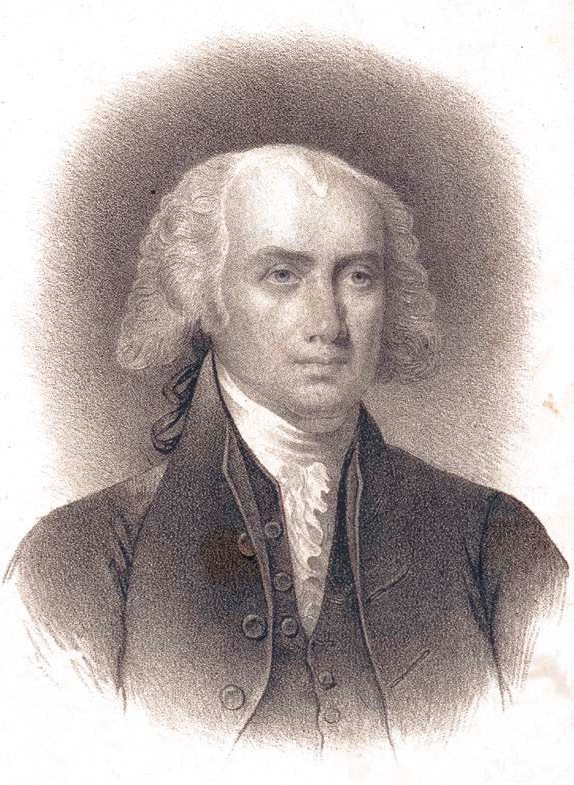
James Madison, who would later go on to be the United States fourth president, said that regulating voting required a particular delicacy.
Ultimately, the Articles of Confederation passed on the matter of elections, leaving their running and questions of who should or should not be able to vote up to the states. When the Constitution was drafted, it, too, left elections to the states, though this time the Founders reserved the right of a future Congress to make laws regarding elections: The times, places and manner of holding elections for Senators and Representatives, shall be prescribed in each state by the legislature thereof; but the Congress may at any time by law make or alter such regulations.
Next page
